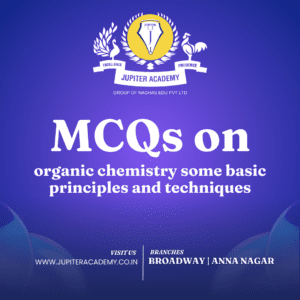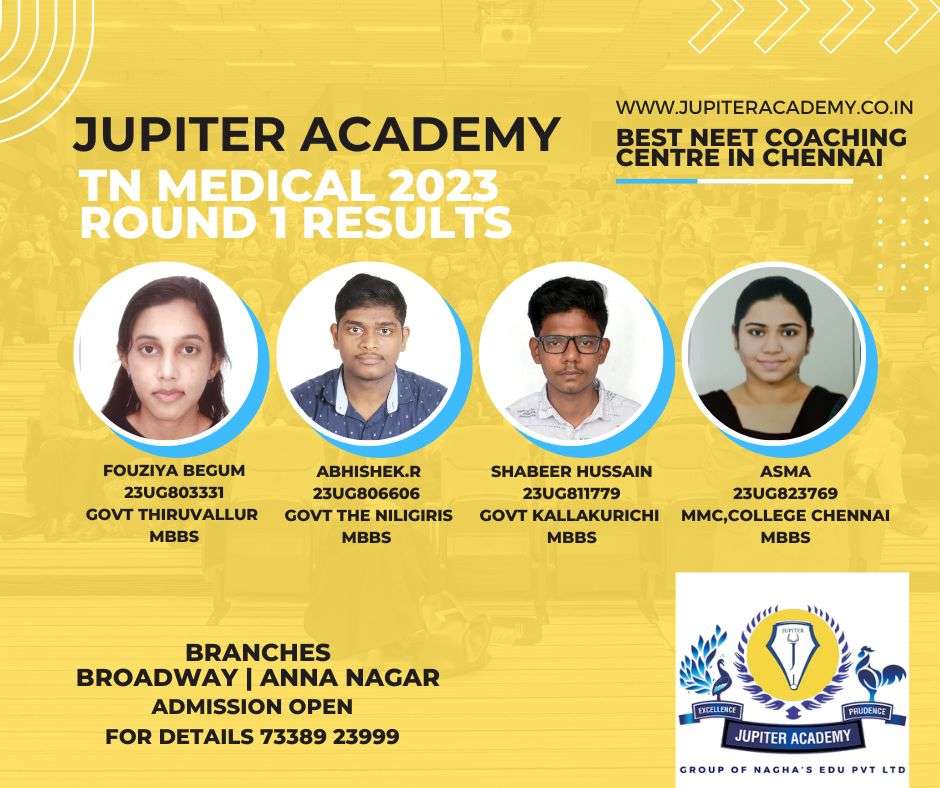NEET mcqs on organic chemistry some basic principles and techniques

Organic chemistry is the study of carbon compounds, which are the basis of all living things. It is one of the most important subjects in the NEET exam, accounting for around 28% of the total marks in the chemistry section.
Here are some of the basic principles and techniques in organic chemistry that are important for the NEET exam:
- Structure and bonding: Organic molecules are made up of carbon atoms bonded to each other and to other atoms, such as hydrogen, oxygen, and nitrogen. It is important to understand the different types of bonds that can form between carbon atoms and other atoms, as well as the different shapes of organic molecules.
- Isomerism: Isomers are compounds that have the same molecular formula but different structures. There are two main types of isomerism: structural isomerism and stereoisomerism. Structural isomers have different arrangements of atoms, while stereoisomers have the same arrangement of atoms but different orientations in space.
- Functional groups: Functional groups are groups of atoms that have characteristic chemical properties. Some important functional groups include alcohols, aldehydes, ketones, carboxylic acids, amines, and amides.
- Organic reactions: Organic reactions are chemical reactions that involve organic compounds. It is important to understand the different types of organic reactions and the factors that affect their rates and selectivities.
- Organic synthesis: Organic synthesis is the process of making organic compounds from other organic compounds. It is important to be able to design and carry out simple organic synthesis reactions.

Here are some NEET-style multiple-choice questions (MCQs) on the topic of “Basic Principles and Techniques of Organic Chemistry” along with their answers:
1. **Question:** Which of the following is NOT a primary organic reaction?
A) Substitution
B) Addition
C) Elimination
D) Oxidation
**Answer:** D) Oxidation
2. **Question:** Which technique is commonly used for the separation of components of a mixture based on differences in their boiling points?
A) Filtration
B) Distillation
C) Chromatography
D) Crystallization
**Answer:** B) Distillation
3. **Question:** In the IUPAC nomenclature system, what is the correct name for the compound CH3-CH2-CH(Cl)-CH3?
A) 1-chlorobutane
B) 2-chloropropane
C) 1-chloropentane
D) 2-chlorobutane
**Answer:** B) 2-chloropropane
4. **Question:** What is the general formula for an alkane?
A) CnH2n+2
B) CnH2n
C) CnHn
D) CnH2n-2
**Answer:** A) CnH2n+2
5. **Question:** Which functional group is found in alcohols?
A) -COOH
B) -OH
C) -NH2
D) -C≡C-
**Answer:** B) -OH
6. **Question:** What is the primary purpose of recrystallization in organic chemistry?
A) To remove impurities from a solid compound
B) To convert a solid into a liquid
C) To increase the solubility of a compound
D) To increase the boiling point of a compound
**Answer:** A) To remove impurities from a solid compound
7. **Question:** Which of the following is NOT a method of separation in chromatography?
A) Gas chromatography
B) Paper chromatography
C) Gravity filtration
D) Thin-layer chromatography
**Answer:** C) Gravity filtration
8. **Question:** Which of the following reagents is commonly used to convert an alkene into an alkane?
A) H2SO4
B) KMnO4
C) HBr
D) H2
**Answer:** D) H2
9. **Question:** What is the hybridization of the carbon atom in a molecule of methane (CH4)?
A) sp
B) sp2
C) sp3
D) sp3d
**Answer:** C) sp3
10. **Question:** What is the name of the reaction in which a molecule loses a water molecule (H2O) to form a new compound?
A) Hydrolysis
B) Dehydration
C) Oxidation
D) Reduction
**Answer:** B) Dehydration
These questions should help you practice your knowledge of basic principles and techniques in organic chemistry for the NEET exam.
JEE mcqs on organic chemistry some basic principles and techniques
Here are some JEE multiple-choice questions (MCQs) on basic principles and techniques of organic chemistry, along with their answers:
1. What is the primary purpose of recrystallization in organic chemistry?
a) Separation of mixtures
b) Purification of solid compounds
c) Quantitative analysis
d) Decomposition of organic compounds
Answer: b) Purification of solid compounds
2. Which technique is commonly used to separate compounds based on their boiling points?
a) Distillation
b) Chromatography
c) Filtration
d) Crystallization
Answer: a) Distillation
3. Which of the following is a primary technique for the identification of organic compounds?
a) Gas chromatography
b) Thin-layer chromatography
c) Mass spectrometry
d) Infrared spectroscopy
Answer: d) Infrared spectroscopy
4. In TLC (Thin-Layer Chromatography), which component moves faster up the chromatographic plate?
a) The compound with higher polarity
b) The compound with lower polarity
c) The compound with higher molecular weight
d) The compound with lower molecular weight
Answer: b) The compound with lower polarity
5. What is the purpose of using a desiccant in organic chemistry experiments?
a) To measure the volume of a gas
b) To remove impurities from a solvent
c) To protect chemicals from moisture
d) To accelerate a reaction
Answer: c) To protect chemicals from moisture
6. Which spectroscopic technique is used to study the bond vibrations in organic molecules?
a) Nuclear Magnetic Resonance (NMR) spectroscopy
b) Ultraviolet-Visible (UV-Vis) spectroscopy
c) Infrared (IR) spectroscopy
d) Mass spectrometry
Answer: c) Infrared (IR) spectroscopy
7. Which technique is suitable for separating and identifying compounds in a complex mixture?
a) Recrystallization
b) Filtration
c) Gas chromatography
d) Simple distillation
Answer: c) Gas chromatography
8. What is the purpose of a reflux condenser in organic synthesis?
a) To collect the distillate
b) To prevent the escape of volatile compounds
c) To measure temperature
d) To filter solids from a liquid mixture
Answer: b) To prevent the escape of volatile compounds
9. Which of the following is NOT a common method for the determination of molecular formula?
a) Elemental analysis
b) Mass spectrometry
c) Infrared spectroscopy
d) Nuclear Magnetic Resonance (NMR) spectroscopy
Answer: c) Infrared spectroscopy
10. What type of reaction is typically used for the synthesis of esters?
a) Substitution reaction
b) Addition reaction
c) Esterification reaction
d) Polymerization reaction
Answer: c) Esterification reaction
Here are some tips for studying organic chemistry for the NEET exam:
- Start by understanding the basic concepts. Make sure you understand the structure and bonding of organic molecules, isomerism, functional groups, and organic reactions.
- Practice drawing and interpreting organic structures. This will help you to understand the different types of organic molecules and how they react.
- Solve organic chemistry problems. This is the best way to test your understanding of the concepts and to learn how to apply them.
- Use reference materials. There are many good organic chemistry textbooks and websites that can help you to learn the material.
JEE mcqs on organic chemistry some basic principles and techniques JEE mcqs on organic chemistry some basic principles and techniques JEE mcqs on organic chemistry some basic principles and techniques JEE mcqs on organic chemistry some basic principles and techniques JEE mcqs on organic chemistry some basic principles and techniques JEE mcqs on organic chemistry some basic principles and techniques JEE mcqs on organic chemistry some basic principles and techniques JEE mcqs on organic chemistry some basic principles and techniques JEE mcqs on organic chemistry some basic principles and techniques
NEET mcqs on organic chemistry some basic principles and techniques NEET mcqs on organic chemistry some basic principles and techniques NEET mcqs on organic chemistry some basic principles and techniques NEET mcqs on organic chemistry some basic principles and techniques NEET mcqs on organic chemistry some basic principles and techniques NEET mcqs on organic chemistry some basic principles and techniques NEET mcqs on organic chemistry some basic principles and techniques NEET mcqs on organic chemistry some basic principles and techniques NEET mcqs on organic chemistry some basic principles and techniques


